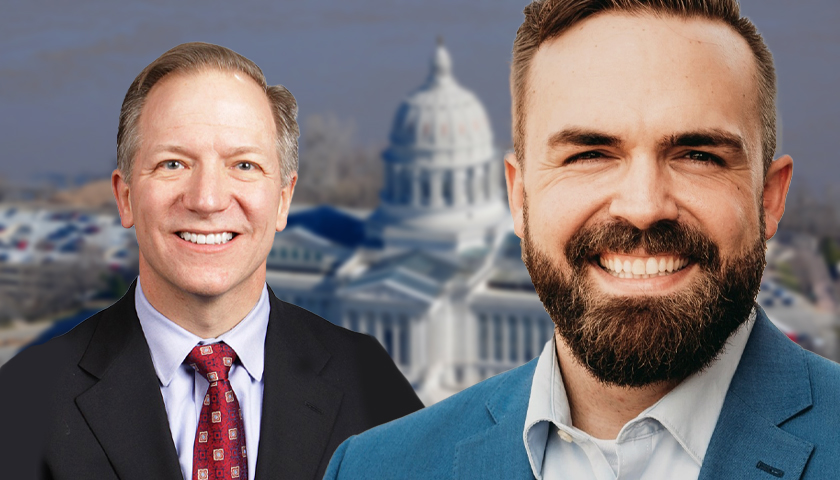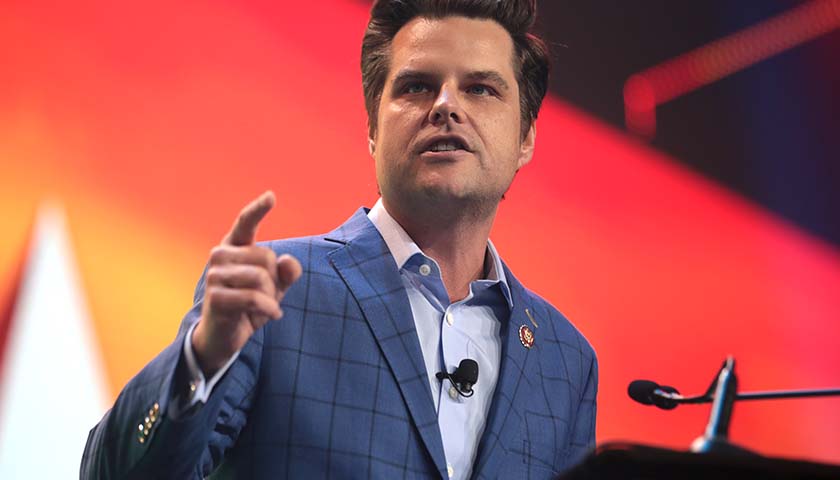by Joe Mueller
If criticism of two Republican members of the Missouri House of Representatives is any indication, a bill to ban critical race theory (CRT) will face challenges.
More than a thousand people filed digital testimony forms on the bill and the Elementary and Secondary Education Committee’s hearing lasted more than four hours.
State Rep. Nick Schroer, R-O’Fallon and a candidate for the term-limited Senate seat of Bob Onder, R-St. Charles, testified on HB1474 on Tuesday. State Rep. Doug Richey, R-Excelsior Springs, joined Schroer as they teamed to combine the banning of critical race theory with Richey’s “Parents’ Bill of Rights,” HB1995.
State Rep. Shamed Dogan, R-Ballwin, said he supported the focus of HB1995 and mentioned state Sen. John Rizzo, D-Independence, and his “Parents’ Bill of Rights.”
“I think that’s something that we could get behind as a committee and as a body,” said Dogan, who is serving his last year in the House due to term limits and is a candidate for St. Louis County Executive. “This discussion over critical race theory, at least the way it’s presented here in this bill, is not something that unites people.”
Schroer’s bill defines “curriculum implementing critical race theory” to include, but not be limited to, identifying people or groups of people, entities, or institutions in the United States as inherently, immutably, or systemically sexist, racist, biased, privileged, or oppressed. The bill also includes prohibition of curriculum employing immutable, inherited or objective characteristics such as race, income, appearance, family of origin or sexual orientation to:
- define a person’s identity;
- classify persons into groups for any purpose including, but not limited to, the targeting of only certain groups for education, formation, indoctrination, viewpoint, or transformation;
- perpetuate stereotypes
- assign blame to categories of persons regardless of the actions of particular individuals.
“I think we have similar goals,” state Rep. Phil Christofanelli, R-St. Charles, told Schroer during the hearing. “I think we have a lot of work to do to get this particular language to match those goals.”
Christofanelli, the first gay Republican member of the House, told Schroer examining the theories of Karl Marx, Milton Friedman and Friedrich Hayek led to his development of principles for elected leadership.
“Sure, we could have banned Marxism from all the public schools, but I would have been a less-articulate legislator if that policy took effect,” Christofanelli said.
The bill states the following as critical race theory curriculum:
- The 1619 Project initiative of the New York Times;
- The Learning for Justice Curriculum of the Southern Poverty Law Center;
- Teaching Tolerance, or any successor curriculum;
- We Stories
- Programs of Educational Equity Consultants;
- Any other similar predecessor or successor curriculum.
Schroer testified his motivation for the bill’s language was last year’s one-hour floor debate to add a critical race theory amendment to a bill.
“We should be teaching the fact that racism is bad,” Schroer said. “We should be teaching that slavery did occur and is still occurring in the world today. I’m open to addressing that. I think the reason for this language is a springboard off the debate we had.”
Dogan, the only Black Republican in the Missouri Legislature, told Schroer he didn’t have good memories of the debate. Dogan said he joined fellow members of the Black Caucus as they intentionally stood at all House microphones during the debate.
“Every member of the Black Caucus intentionally did that because we were really upset by that legislation and the approach it took of just banning anything in the language,” said Dogan. “It’s concerning and really over-broad because it says any of the claims, views, or opinions presented in the 1619 Project are banned. In other states that have taken that approach, we’ve seen where that’s led to classrooms feel like they have to be neutral on the Holocaust because that’s too controversial.”
Ashley Lawson, executive director for Missouri Prosper, a 501(c)4 nonprofit social welfare organization, acknowledged tension surrounding the issue during testimony in support of the bill.
“We know this is a very hot topic that is causing a lot of divide,” Lawson said. “Where we saw the concern is parents and community members were finding information that showed CRT ideology. We also, in our own research, were able to find data and examples of CRT ideology in schools while school districts were saying they were not teaching it. It’s that lack of transparency that is concerning to us.”
All Democrat committee members who questioned Schroer and Richey during the hearing were critical. Future progress of the bill can be tracked through its dedicated website, HB1474.
– – –
Joe Mueller covers Missouri for The Center Square. After seven years of reporting for daily newspapers in Illinois and Missouri, he spent the next 30 years in public relations serving non-profit organizations and as a strategic communications consultant.
Photo “Bob Onder” by Missouri General Assembly and photo “Nick Schroer” by Nick Schroer, State Senate.





